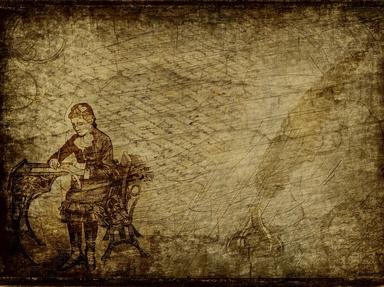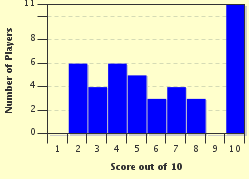Quiz Answer Key and Fun Facts
1. In Book 3 of "The Odyssey", Nestor offers a sacrifice to Athena to secure her favour, in the form of a heifer with gilded horns. In the ritual, which part of the animal is the deity's share, meant to be burnt on a pyre?
2. In Book 1 of "The Iliad", a god has sent a pestilence to the Greek army and must be propitiated by hecatombs. Which god, who is known to bring sudden death, is this bringer of plague?
3. In Book 2 of "The Iliad", a duel is to take place between Menelaus and Paris. This single combat is supposed to end the Trojan war. Sacrifices must be made before the combat to secure the covenant between the fighters: two lambs and a goatskin of wine, and solemn oaths concluded by a handshake. Which god presides over oaths?
4. When an oath is broken, which deity is specifically called upon to punish the oathbreakers?
5. Some of the immortals take sides in the Trojan war. In "The Iliad", how do the gods protect their favourites when they are hurt or overwhelmed by an assailant?
6. In Book 6 of "The Iliad", Hecuba vainly tries to placate a deity that favours the Greeks. She offers in sacrifice twelve heifers and a beautiful veil at the temple of a goddess. Which goddess is it?
7. In Book 9 of "The Odyssey", Ulysses sacrifices a lamb to Zeus after having blinded the Cyclops Polyphemus and escaped him. Zeus does not heed his sacrifice; he is not yet fated to return home. Which god, father of the Cyclops, is ultimately responsible for the wanderings of Ulysses?
8. In Book 10 of "The Odyssey", while Ulysses is staying with Circe, the magician advises him to visit the blind seer Tiresias in the Underworld in order to learn from him how to return home. A ritual to invoke the dead is then described. What is NOT part of that ritual to make the dead come near him?
9. In Book 16 of "The Iliad", Achilles offers a drink-offering and a prayer to a god: that Patroclus may chase the Trojans away from the Greek ships and return unharmed. Which god, master of omens, does Achilles pray to?
10. Achilles's prayer has not been granted: Patroclus has been killed by Hector. In Book 23 of "The Iliad", Achilles grieves over the death of his dear friend and prepares a spectacular funeral for Patroclus. What is NOT an element of Patroclus's funeral pyre?
Source: Author
tigasrule
This quiz was reviewed by FunTrivia editor
looney_tunes before going online.
Any errors found in FunTrivia content are routinely corrected through our feedback system.

